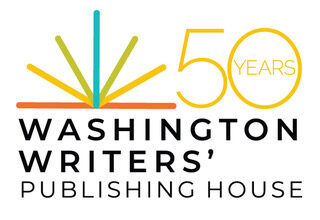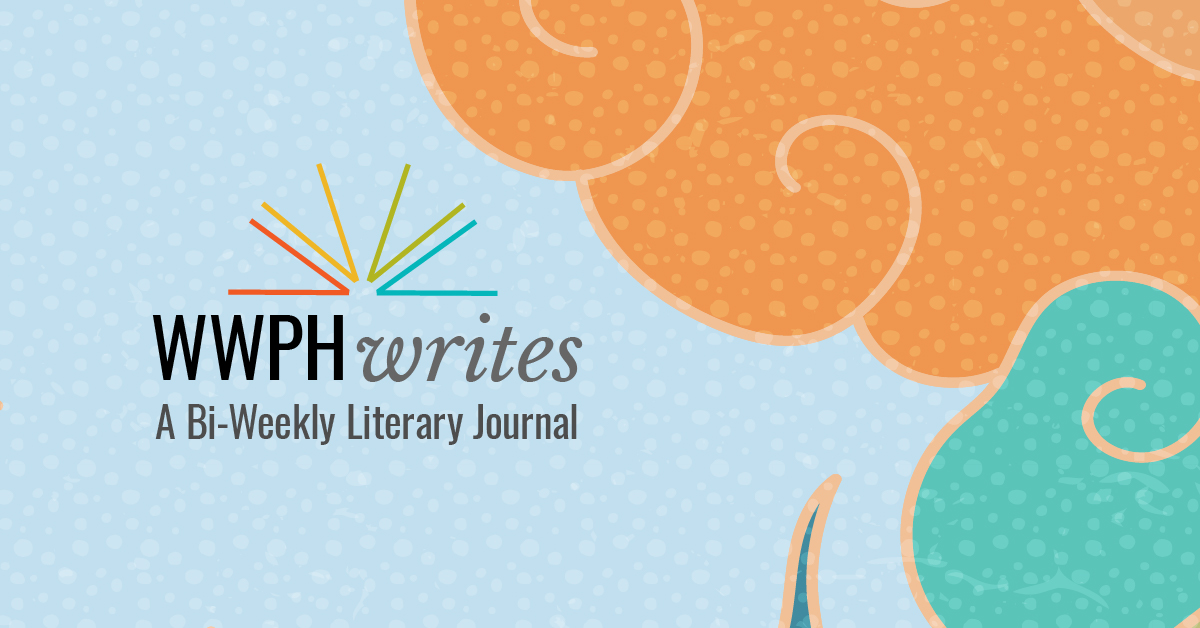WWPH Writes: Issue # 9

Issue #9
Dedicated to Poetry & Fiction Writers in the DMV
Welcome to Issue #9
For many this is a somber weekend, and we have two writers who share that outlook in this issue: poet Fran Abrams and fiction writer Barbara Schilling Hurwitz. Fran Abrams’ tightly-woven, beautifully-rendered poems touch upon children in flight and the pandemic, and Barbara Schilling Hurwitz’s short story takes us back in time for an explosive moment of antisemitism.
I am, however, a natural optimist. Writing and reading, and now editing WWPH Writes, renews me even as I remember twenty years ago, when I worked in midtown Manhattan. I hope writing and reading renews you too.
Looking optimistically ahead, I urge you to submit your poetry and fiction to WWPH. If you are a writer from DC, Maryland or Virginia, don’t miss the news of our annual contests for full-length poetry and fiction manuscripts at the end of our journal. Lastly, if you are writer from the DMV, we are open for submissions at WWPH Writes. It’s free to submit and to subscribe. Submit here.
Never Forget. 9.11.
Caroline Bock
Fiction Editor, WWPH Writes
WWPH Writes: Poetry
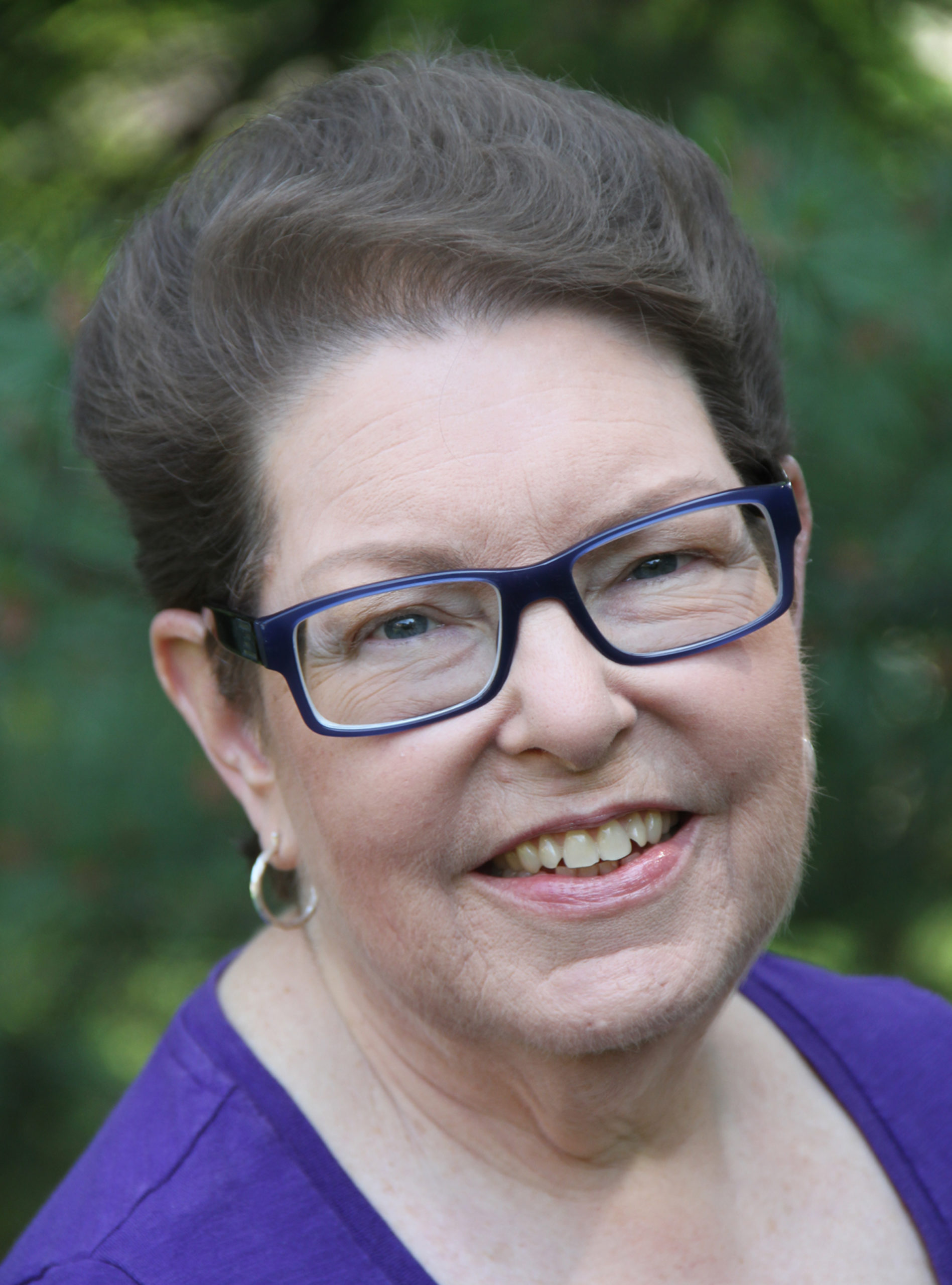
Fran Abrams of Rockville, Maryland began writing poetry in 2017. She has had poems published in print and online, including in the Winter 2021 Bulletin of Alan Squire Publishing, Bourgeon Online, and upcoming in Gargoyle Magazine. Her poems appear in eight anthologies, including This is What America Looks Like from Washington Writers Publishing House. In 2019, she was a juried poet at Houston Poetry Fest and a featured reader at DiVerse Gaithersburg (in Maryland) Poetry Reading Series. Visit franabramspoetry.com.
Safe
That day we were chased down the sidewalk by
That man until we lost him by dashing into
That store where we knew all the hidey-holes and knew
That woman behind the counter who told us
That place was safe, and we could come in any time
That we were scared.
Queue
A letter we pronounce
followed by a line of silent letters
Like we stand in line
mutely summoning courage
for a vaccine shot
Each praying not to be
one who is pronounced
Endings
Gathering petals
fallen to the ground
will not restore
flowers to life.
Gathering clothes
he stepped out of last night
will not bring back
his warm touch.
© Fran Abrams 2021
WWPH Writes: Fiction
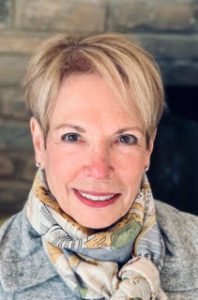
Barbara Schilling Hurwitz is a veteran teacher who has discovered a new voice through creative writing. Her short stories have been published in Montgomery Magazine, American Writers Review, The Drabble, Fewer Than 500, Writers Rock Quarterly and several Pure Slush anthologies. Learn more about Barbara Schilling Hurwitz here.
Protected Territory
The sun had already set on this brisk November day in a town named for its location, squeezed between two cemeteries. In Middle Village, New York, streets were invisibly divided between working-class Russian Jews, Italians and Irish immigrants. The daylight hours, in the alleyways between rows of connected, two-story, clapboard houses, were reserved for children’s play, but as the sun would begin to set, mother’s voices in multiple languages could be heard calling their little one’s home.
Local shop owners had locked up for the night, and only crisp fallen leaves danced on the deserted streets. The traffic light at the main crossroads cast its changing glow, and there was no one to notice the teenage boys camouflaged in black who had slipped into one of those alleys, waiting for the sound of dismissal from the nearby synagogue.
At 6:00 pm the doors to the Hebrew Institute burst open. Children’s voices reverberated through the neighborhood as boys exchanged kippahs for baseball caps, happy to be released from religious study. David, the leanest and smallest, took the lead like a wild stallion at the head of his herd. The boys followed his antics, bantering and roughhousing while making their way down the avenue.
As they turned the corner and approached the alley, the scent of cigarette smoke triggered their internal alarms, and the boys, wearing scars of prior territorial warfare, scattered. But not David. His mother had been forced to flee from her childhood home, he would not be forced from his. He flexed his fists and continued on until the awaiting gang emerged, surrounding him, refusing to let him pass.
“We own this street now, Kike,” the one known as Wolf said stepping forward, his muscles straining the seams of his sweatshirt. “Jew-boy, you gonna have to find a new route home or pay to pass.” He took a long drag on his cigarette and flicked the butt at David’s face.
David ducked and the boys laughed, tightening their circle around him. Wolf’s three pals followed his lead, tossing their cigarettes at David. One caught in his collar, but David swiped it away. The scent of anxious sweat seeped through his jacket.
Wolf reached out, knocking David’s treasured Yankees cap from his head, triggering David’s first blow to the bully’s nose. And while Wolf paused to wipe the blood dripping onto his upper lip, David landed a few more punches before his head was locked in Wolf’s arms. Left with only his thrashing legs to defend himself, David kicked one boy in the groin, sending him moaning to the pavement, while the other two continued pummeling David with alternating blows to his face and gut. It wasn’t until David vomited onto Wolf’s shoes that he was dropped to the pavement where he lay still. Wolf rubbed his shoes on the underside of David’s jacket and the boys sauntered off.
When the only sound was of his heavy breathing, David wiped the blood from the end of his nose and spit from his lips before he pulled himself up and eased his way home. He slipped past the kitchen unnoticed, but ran into his father who was exiting the bathroom.
“Again?” he said and gently ran his finger across the oozing cut over David’s brow. “Mama’s not going to be happy about this. You better wash up. There are some butterfly bandages under the sink.”
By the time David entered the kitchen, his mother was ladling her watery vegetable soup with the smallest piece of flanken into bowls from a pot on the stove.
“Hi, Mama,” David said, air kissing her cheek and turning away before she noticed his face.
“Ah, mein kindalah, nice of you to arrive,” she teased, speaking in Yiddish, while adding an extra piece of the beef to his portion. But as she turned to pass him the bowl, she caught sight of the deepening purple glow on his cheek and bandaged brow.
“Oy, mein God, another fight?” Tears welled in her eyes as she set the soup bowl on the counter and cupped his face in her hands.
David stepped back and waved her off before she could pull him into an embrace.
“Tsk, tsk, tsk, oy, what they did to that handsome face,” she said with her hands now cradling her own head.
“Don’t worry, Ma, I’m fine. You should see the other guy.”
Shaking her head, she scowled in silence for a moment, and then pointing at no one in particular, she said, “So… where’s that brother of yours? He promised to walk you home.”
“Yeah, he’s coming.” Now it was David’s turn to scowl. He wished he were the big brother, two years older and several inches taller. No doubt Zev had looked for him after school. He always did, but today David ran out too fast, leading his friends away from the steps where his brother was to meet him.
“I can take care of myself, Ma. I don’t need Zev babysitting me.” Besides, he knew his brother had other interests, a girl… a girl he preferred to walk home from Hebrew school, and with whom he could find other things to do in the village alleys.
The scent of cologne stole Mama’s attention from David as Zev entered the kitchen.
“Hello, Mamala,” he sang out.
Her lips pursed and her blue eyes iced over. Without saying another word, she stepped up to her eldest son, and slapped his face. And as she pulled back her hand to slap him again, David stretched himself tall and stepped between them.
“It’s not his fault, Ma. Really. I left before his class was dismissed.”
Mama dropped her hand and while nodding her head and mumbling, “Kindalah, kindalah, kindalah,” she returned to the stove where she finished ladling out their bowls of soup.
© Barbara Schilling Hurwitz 2021
WWPH Community News
 ANNUAL CONTESTS FOR FULL-LENGTH POETRY AND FICTION MANUSCRIPTS NOW OPEN
ANNUAL CONTESTS FOR FULL-LENGTH POETRY AND FICTION MANUSCRIPTS NOW OPEN
The Washington Writers’ Publishing House’s annual JEAN FELDMAN POETRY Prize and FICTION Award for full-length poetry and fiction manuscripts is now open through November 15th. For 2021, we have expanded our geographical outreach to include any resident from the DMV. We have also increased our award to $1,500 and will select one winner and up to three finalists in poetry and fiction. Our entry fee also remains at 2020 levels: $25.00. Members of WWPH will judge. Submit here.
*
Thinking of submitting to WWPH Writes? We are looking for poetry and fiction that celebrate, unsettle, and question our lives in the DC, Maryland, and Virginia area (DMV) and in our nation. We seek work that is lyrical and dynamic, and we believe in cultivating a diverse environment of content, form, risk, and experimentation. New perspectives and voices with craft and fierceness are strongly encouraged to submit. Send us your best work–challenge us with your ideas and your writing. We look forward to reading your poems and stories! Submit here.
*
WWPH Writes is the bi-weekly literary journal of The Washington Writers’ Publishing House, a 45-year old nonprofit, 501c3, all-volunteer, cooperative press. One can now easily donate to WWPH via our new donation page. Thank you for reading our work and thank you for your support!
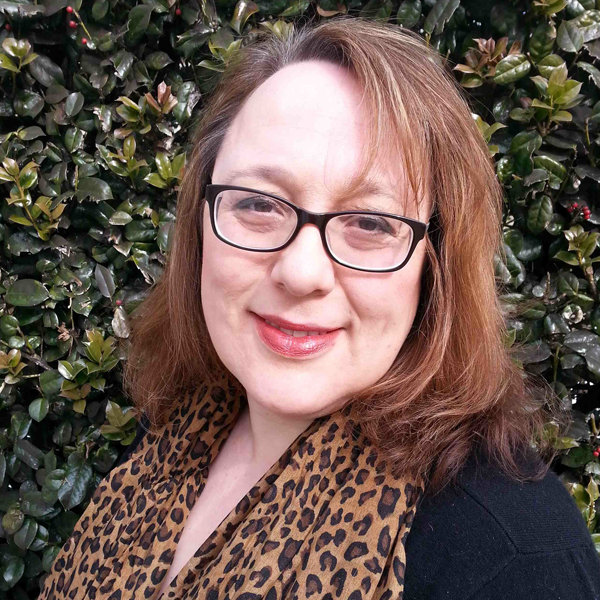
Caroline Bock
Fiction Editor, WWPH Writes
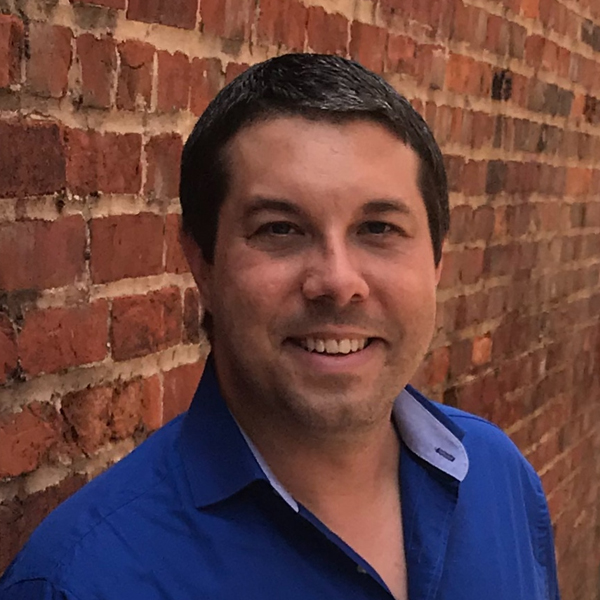
Jona Colson
Poetry Editor, WWPH Writes
